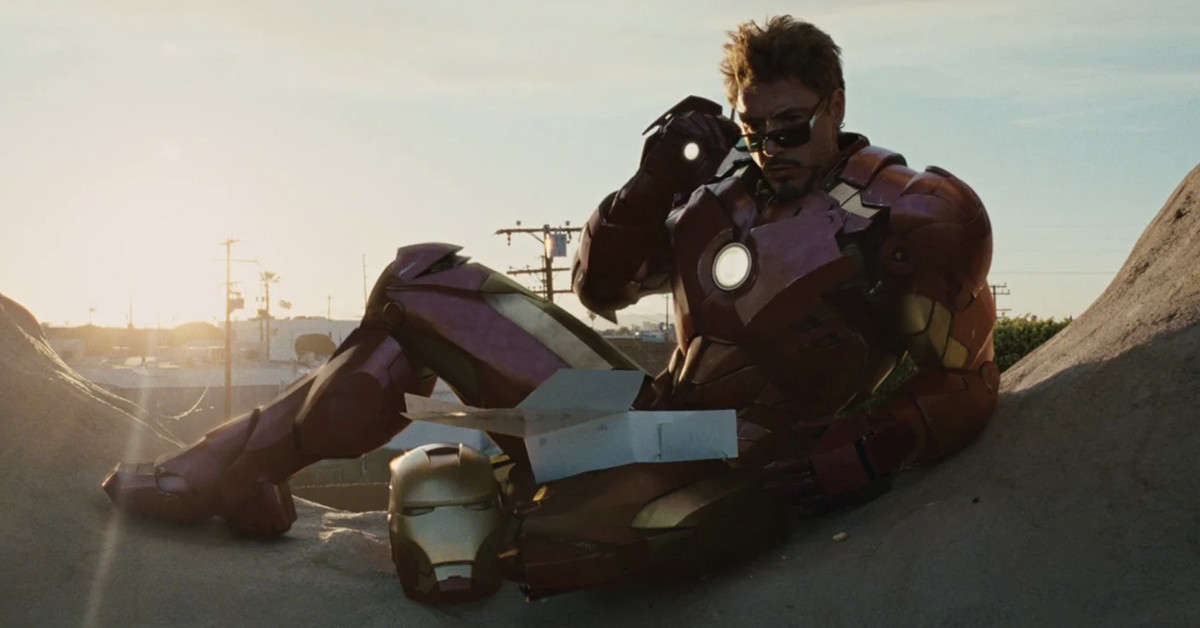
2019 is coming to a close, and with it comes the end of the decade. Prestige TV has never been better. Marvel turned on-screen superheroes into the biggest (and most profitable) trend of the era. Streaming is the new battlefield for viewer eyeballs. To close out the 20-teens, Verge staffers break down their favorite moments, media, and what they believe was the most overlooked in entertainment from the last 10 years.
I’m not here to convince you Iron Man 2 is a good movie. It’s a pointless endeavor. Instead, I want to look back at the Marvel movie that kicked off the 2010s, and its impact on the Marvel Cinematic Universe.
Iron Man 2 is a story about legacy. The whole thing is chaotic, ambitious, messy, and trying to figure itself out. It’s also the movie that visionary producer Kevin Feige used as a launchpad for the MCU. If successful, Iron Man 2 — alongside previous films Iron Man and The Incredible Hulk — would help define Feige’s legacy, too. It’s a film about Tony Stark, played by the irreplaceable Robert Downey Jr., struggling to living up to unfair expectations, newfound responsibility, and surviving a strange new world. That also describes Marvel Studios’ history.
Iron Man 2 was released on May 7th, 2010, marking the first new Marvel movie set within the Avengers universe since The Incredible Hulk in 2008. It was a strange time. Iron Man’s surprising success juxtaposed The Incredible Hulk’s poor reception. Considering the team was in the earliest stages of planning an interconnected superhero universe, having one successful film and one flop left Feige and his team in a tricky spot. The Avengers Initiative got a wonky set up through Iron Man and The Incredible Hulk’s post-credits scenes. (Feige told Vanity Fair their aim was to make enough money to continue making movies, not “sow the seeds of a big universe.)
Much was changing. Marvel Studios was now under House of Mouse ownership. Disney was in a rough spot creatively. Live-action films were forgettable, and the animation side never reached the height of its ‘90s heyday. Acquiring Marvel Entertainment wasn’t just a bet on superhero movies — a form of genre film that began to skyrocket following X-Men in 2000 and Spider-Man in 2002 — but an attempt to bring magic back to House of Mouse. Even though Disney didn’t have a hand in developing Iron Man 2, the Avengers initiative had to pay off. Iron Man’s post-credit tease needed to create hype that Marvel Studios and Disney could rely on.
“It was after the weekend of Iron Man [when it grossed a staggering $98.6M at the box office] that we said, ‘Oh, A) we’re going to be able to make more of these movies, and B) we’ll be able to tie them together,’” Feige told Vanity Fair.
Feige set himself up to pull off the impossible. Living up to a practically unattainable standard is also a big part of Iron Man 2’s arc. The movie opens with Tony talking about legacy while attending Stark Expo, an event set up by his late father, with whom Tony had a tumultuous relationship. Including the personal aspect is mostly creative; introducing viewers to the concept of Howard Stark also helps establish the character’s importance for another movie down the pipeline, Captain America: The First Avenger. Consider Iron Man 2 the groundwork for the universe Feige saw.
Characters like Nick Fury (introduced in Iron Man’s post-credits) gave the sequel the continuity the franchise needed, while newcomers like Agent Phil Coulson (brief role in Iron Man) and Agent Natasha Romanoff helped build mystery. S.H.I.E.L.D., the organization that sits at the core of the Avengers universe, gets a proper introduction in Iron Man 2, and less than subtly operates as a tease for what’s to come. Even a short conversation between Fury and Tony about his father, Howard Stark, exists to demonstrate how important S.H.I.E.L.D. was prior to Iron Man and into present day.
Trying to stuff a two-and-a-half-hour movie with pieces of lore — both past and present — is a big part of why Iron Man 2 ultimately fails as a standalone movie. It’s bogged down by its own ambitions. Much like Tony Stark, whose use of his superhero suit is slowly poisoning him, trying to do too much has disastrous consequences. Director Jon Favreau described integrating it all as “carving our way through the wilderness.”
But Iron Man 2’s importance cannot be ignored. Tony Stark needs to be at his most self-destructive, he needs to fail, and persevere in order for the rest of the Infinity Saga to land. The version of Tony Stark that exists in Iron Man 2 is one learning to grapple with this world he’s entered; he keeps his insecurities and doubts at bay by relying on bravado and machismo. He’s narcissistic and self-serving, and he needs missteps that are faults of his own to shape his crucial, redemptive arc in Endgame. Marvel Studios and Tony Stark took that trip together, through successes (The Avengers) and failures (Avengers: Age of Ultron) that ultimately resulted in one of the most ambitious projects of the decade.
Iron Man 2 played a big role in kickstarting the legacy Marvel Studios has today. I love this dumb, try-hard, messy movie. When I think of the Marvel Cinematic Universe, I don’t think of the intertwining stories, choreographed fights, or orchestral scores. I feel it, a warmth that inexplicably radiates through me. The MCU came into my life at a pivotal time. Like the characters and greater franchise before me, I grew into myself through a path of messy missteps and sheer resilience. We all have it for something in our life: a particular record, book, or movie. It’s hardly surprising that fandom, and the rise of its more intense cousin standom, was also redefined in the 2010s. Even if it’s for Iron Man 2.
https://www.theverge.com/2019/12/20/21029908/marvel-cinematic-universe-iron-man-2-robert-downey-jr-kevin-feige-disney

